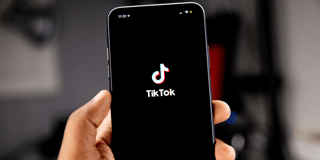Contributors
-
 Written by Sean Dougherty
Written by Sean DoughertyA copywriter at Funnel, Sean has more than 15 years of experience working in branding and advertising (both agency and client side). He's also a professional voice actor.
Editor's note: This article has been updated to reflect best practices as of February 6, 2024
Did you know marketing automation is expected to grow to $9.5B by 2027?
Marketing automation is an efficiency and productivity booster like no other. Your marketing team — and you know this — is likely overworked, so giving them the tools they need to focus on what they do best will be reflected in the overall performance of your business.
So, how does marketing automation work, and what are the benefits of marketing automation aside from a happier marketing team?
What is marketing automation?
Marketing automation is a technique that utilizes software to help streamline a variety of processes. Why this matters:
- It frees up your team to work on marketing-specific tasks.
- Your team can complete those tasks faster.
- Your team, unburdened by repetitive tasks that add no value to marketing, produces better campaigns.
- A focused team meets strategic goals more efficiently.
- As time goes on, your team is more focused, meaning greater consistency in everything from staff attendance to campaign success.
But isn’t marketing automation just automating email campaigns?
Nope. It’s so much more than that! It's a lot broader and much more valuable. In fact, you can automate almost any area of digital marketing, from social media scheduling to marketing reporting.
Now, all the buzz around artificial intelligence (AI) tools lately probably has you wondering what this technology might mean for marketing…
Marketing automation is helpful. It’s a tool like any other in your team’s toolbox. But neither AI nor marketing automation is a magic wand that can suddenly create stellar marketing campaigns. In other words, nothing can replace the human element marketers bring to the table.
Instead, marketing automation tools influence how your team operates. Automation tools empower the team, enhancing their marketing approach. It lets them do what they do best — marketing!
Why is marketing automation important?
Marketing automation isn’t just important. Today, it’s crucial.
According to research by Deployteq, the top three campaigns marketers focus on are:
- Lead nurture
- Newsletters
- Data-driven
In the Future of the Martech Stack 2024 Trend Report by Ascend2, only 19% of companies employ marketing automation tools in their tech stack. The report found that 60% of respondents cited the overall cost of tools, and 34% said integration challenges are barriers to implementation.
But earlier Ascend2 research discovered the reasons marketing teams invest in automation are:
- Aligning marketing and sales teams
- Boosting customer engagement
- Improving customer experience
And those reasons haven't changed.
But it’s the underlying benefits of a marketing automation strategy that actually matter. The underlying benefits are the ones that lead to aligned teams, improved experiences, and stellar campaign outcomes.
Automating your marketing tasks can:
- Alleviate team stress
- Result in less employee burnout
- Encourage less employee turnover
- Improve team efficiency
These effects mean:
- Improved campaigns
- Ability to launch more campaigns in less time
- Collecting marketing data with little intervention
All of this leads to a more polished client onboarding experience and better customer engagement experiences, which lead to better reviews (both online and word-of-mouth), which improve the entire marketing department and, therefore, the entire company. See?
(And don’t forget ROI! The average ROI for email marketing in 2024 is $42 for every $1 spent!)
Why do businesses need marketing automation?
Whether you're a small business selling products to customers, a B2B enterprise, a developing startup, or a mature SaaS company, you can take advantage of marketing automation.
Since so many different marketing processes can be automated, you get numerous potential advantages:
1. Streamlined marketing data management and reporting
With marketing automation, data collection is easier than ever. You no longer have to monitor things on your own and assemble them in a spreadsheet manually. Instead, the automation software does everything for you, from data collection to performance tracking.
Automating data management and reporting also allows you to make use of the data faster. For example, you can automatically generate a report in a data visualization tool like Tableau and then share your Tableau dashboard with your team to review performance and generate new ideas to adjust your marketing strategy.
Besides the fact that data automatically reaches you, it's also up to date and appears in real-time, allowing you to see the full picture of your performance as it evolves.
2. Data-driven decision-making in marketing
Automation allows for streamlining marketing data collection, management, analytics, and reporting to gain actionable insights and make informed decisions as you build your strategy.
For example, with data-driven marketing, you can shape a 360-degree view of your customers and predict their behavior. Further, this enables shaping your activities according to the interests of your target audience.
Similarly, A/B testing becomes effective with marketing automation tools because you can easily compare the performance of messages you deliver with your marketing campaigns. For example, you can assess the success of your ad campaigns, referral programs, email newsletters, and other marketing efforts to decide whether you should adjust the strategy.
Also, based on the marketing data you receive, you get an overview of your marketing flows and customer journeys, which helps you identify areas of the most impact. This may include steps where most leads drop off or, on the contrary, where they engage the most.
With this kind of up-to-date analytics that automation brings, you can stay flexible and competitive by making changes sooner. Simply speaking, you have an opportunity to use data-driven marketing.
3. Personalized customer experience
Personalization is not just one of many marketing automation trends. This is the real deal.
While there are different ways you can approach it, at the end of the day, personalized customer experiences provide a better and more engaging buyer journey.
Considering that many customers want unique and targeted content during their research, a personalized customer journey can be one of the keys to successful digital marketing.
One great approach is to deliver the right messages at the right time. For instance, if you know some of your customers bought that limited-time T-shirt last year, send them a promo code for this year’s T-shirt line.
But how would you know what consumers want to see and when? The answer is simple: marketing automation and the data it gathers allow you to conduct thorough customer behavior analysis. It helps you better understand your customers and their needs, thereby delivering a more personalized and effective message.
As a result, you can send messages, notifications, offers, content, and feature suggestions based on their demographic (for a small business) or company background information (for B2B). For example, tools like HubSpot CRM allow you to use one of the HubSpot phone integrations for your customer service agents. This will make sure that all of your customers' data is available when your agents need it.
Before every outreach call or upcoming call, all customer data is immediately right in front of your agents to make sure the communication process is as personalized as possible.
4. Smooth collaboration across marketing and sales teams
Outdated structures and systems lead marketing and sales teams to experience gaps in customer data, but automation solutions can begin to help align these processes.
Automation tools help manage all customer data across various teams. The sales and marketing managers can stay up to date with the campaigns' results, with all the performance being easily tracked and accessed.
In addition to tracking, other sales and marketing processes can be easily automated. Imagine if all your customer account creation, client categorization, and follow-ups were handled automatically by the software. Now we're talking!
Recommended Reading: What is performance marketing?
5. Better lead generation and lead nurturing
Speaking of sales teams, a marketing automation solution can also help you to generate and nurture leads. Particularly, you can create a systematic approach to lead scoring and engage with prospects. With the help of automated campaigns and triggers, you'll have more qualified leads and less time-wasting for the sales reps.
Automation software also helps quickly identify where a lead is in the sales funnel. Is the person just researching the topic to get a general overview of what kind of product they need? Or has the person already narrowed down their choice and is about to place an order? Where they are in the buyer journey requires a different approach from your team.
By analyzing website visits, customer service CRM requests, social media activity, and more, the software begins scoring and qualifying leads to prioritize those who are likely to make a purchase. Then, the marketing or sales team can step in with the finishing touches to close a deal, like dedicated drip email campaigns or a call from a salesperson.
When all of the clean and compiled data is easily accessed at any time, sales and marketing teams can act more quickly. It gives them the time and space to discover better ways to work together toward shared goals.
Marketing automation software
Marketing automation software can help you achieve all the great benefits listed above by handling repetitive tasks, providing a better overview of your processes, and enabling you to complete more in less time.
But marketing automation software can't replace your marketing team. It only enhances the marketing team's efficiency. You need to think critically about when (and why) you automate your marketing.
You can begin exploring marketing automation when:
- You have a dedicated marketing team.
- You work from a detailed marketing strategy.
- You've already experienced success using one or more channels.
- You have a growth strategy you want to implement.
- You want to align the efforts of your marketing and sales teams.
If you're ready to dive into marketing automation, you'll also want to research the many kinds of marketing automation platforms available to you. Some are very niche and work best to automate a specific process or task, while others can help more broadly. It's best to have a good idea of your needs and goals ahead of time.
The future is automation
We hope this post gave you a good understanding of marketing automation benefits. As you can see, marketing automation is suitable for different sizes of businesses.
You have many options to automate different areas of your marketing to save time and resources. Most importantly, you will polish your entire marketing strategy, streamline marketing efforts, and stay competitive in the future with the help of marketing automation.
If you're still on the fence, it's time to hop off! Marketing automation is no longer a nice-to-have.
It's a must-have.
Contributors
-
 Written by Sean Dougherty
Written by Sean DoughertyA copywriter at Funnel, Sean has more than 15 years of experience working in branding and advertising (both agency and client side). He's also a professional voice actor.



